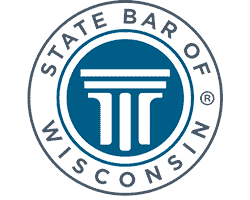by: Kailey Hagen https://www.fool.com/the-ascent/banks/deceased-account/
When a loved one dies, there’s a lot to sort out, including who gets the money left in their bank accounts. The answer to this can be simple or complex, depending on the type of account and the steps your loved one took to express their wishes before they died. Here’s a closer look at what happens to a bank account when someone dies and how bank account inheritance works.
What happens when the sole owner of a bank account dies?
A bank account owner can set their account as Payable on Death (POD) to a person of their choosing. If your loved one did this and named you the beneficiary, you inherit the funds. But to claim them, you must first furnish the bank with proof of your loved one’s death. This usually means providing a certified copy of their death certificate. Once you’ve claimed the funds, the bank closes the account.
If your loved one didn’t name a beneficiary, the money automatically goes to their estate. The executor of the estate will use the money in the account to pay your loved one’s creditors, if they had any. Then, it’ll pay out any remaining funds to the people named in your loved one’s will. If they didn’t have a will, state inheritance laws apply.
What happens when one owner of a joint bank account dies?
In most cases, if one owner of a joint bank account dies, the surviving account holder automatically inherits the funds in the account. Usually, there isn’t any interruption in service and they can continue using the bank account for their everyday spending.
Those with high balances will want to be careful about the FDIC insurance on the account, though. Typically, the FDIC insures your money up to $250,000 per account per bank, and in the case of joint accounts, it insures it up to $250,000 per depositor. So if a married couple has a joint savings account, that’s insured up to $500,000.
Once one of the joint account owners dies, the FDIC will continue to insure that bank account at the $500,000 level for an additional six months. But after this, it will revert to the standard $250,000 coverage. So if you have more than this in the account, you’ll want to transfer some of it to another account type or another bank so it’s all protected.
How to avoid complications with bank account inheritance
If you want to get your finances in order for your heirs, you should take the following estate planning steps to make their inheritance as painless as possible:
Consolidate your bank accounts
These days, it isn’t uncommon for people to keep money in multiple banks, especially those who have ample savings. But this can make it difficult for your heirs to locate all of your bank accounts. If you’re in poor health or are getting older, consider moving all your money into as few accounts as possible while still maintaining adequate FDIC insurance.
If that’s not possible, keep clear records about which banks you have accounts with, what types of accounts they are, and how to contact the banks. This will save your heirs some time when they’re sorting out your estate.
Side note: If your loved one recently passed and they didn’t do this, you may want to look them up in your state’s unclaimed property database. Banks are required to surrender unused bank account funds to the state after a certain period of time, which varies by state. Your loved one’s accounts (if there are any) may not show up here right away after their death, so you might want to check this a few times to ensure you didn’t miss anything.
Name beneficiaries on your bank accounts
If you haven’t already done so, think about who you want to inherit your bank accounts after your passing. Then, reach out to your bank and make your account Payable on Death to them. Most banks enable you to set up multiple beneficiaries if you choose, and some even let you decide what percentage of your funds each person gets.
In order to name someone as a beneficiary, you will need to know that person’s full name and birth date. You may also need their Social Security number.
Once you’ve set up a beneficiary or beneficiaries, you can change them at any time. Many banks enable you to do this through your online account, but you can also do so by calling the bank or visiting a bank branch.
Make a will
Should some bank accounts slip through the cracks, they’ll go to the beneficiaries outlined in your will. So it’s a good idea to have one of these as well. Otherwise, it’s up to the state to decide who receives your money.
A lawyer can help you draft your will and indicate how much you’d like each of your beneficiaries to receive. You can also list who you want to inherit certain pieces of personal property, like your home or your car. Paying for legal advice or legal services can also give you peace of mind.
Consider setting up joint accounts in advance
If you don’t want your loved ones to be locked out of your funds for any length of time after your death, you could consider making them joint account holders while you’re still alive. This way, when you die, they can begin using the funds right away.
But you have to be careful doing this. Once you make someone a joint account holder, they are free to use the funds any way they want, even while you’re still alive. If you put your trust in the wrong person, they could drain your savings while you’re still alive or cheat your other heirs out of their cut. It’s best to stick to a sole bank account with named beneficiaries in this case.
FAQs
Can I withdraw money from my loved one’s bank account?
You may be able to if you’re a joint account holder or if you were named the account beneficiary upon the owner’s death. In the latter case, you’ll need to provide a certified death certificate to the bank proving the original owner has died.
What happens if no beneficiary is named on a bank account?
If no beneficiary is named on a bank account, the money in the account goes to the deceased’s estate. The executor will use the funds to pay any of the deceased’s debts, then it will pay any remaining funds to the heirs listed in the deceased’s will. If the deceased didn’t leave behind a will, the money will go to relatives, according to state inheritance laws.
Can I keep using my loved one’s bank account after they die?
If you were a joint account holder, you can continue to use the account after your loved one dies. But if this isn’t the case, you cannot. You must be listed as the account beneficiary and provide the bank with proof of the owner’s death to continue accessing the funds. Or else the money goes to the deceased’s estate.




